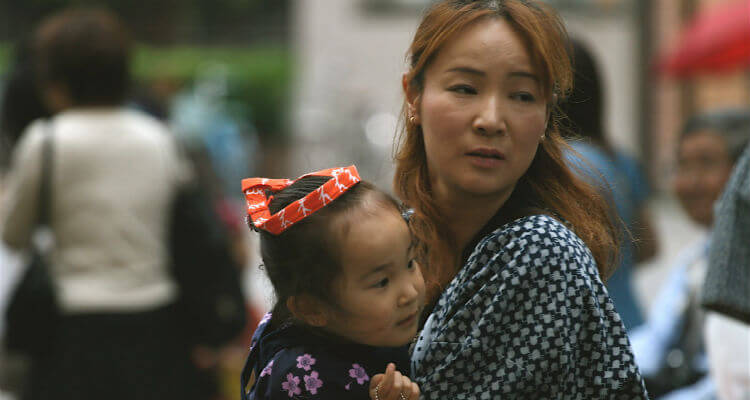Change Everything: An Innovative Approach to Japan’s Birthrate Crisis
How reversing traditional gender roles could save the country.

Japan has a problem, an extremely bad problem—one that, if not dealt with soon, could conceivably lead to economic and social disaster.
The use of “conceivably” wasn’t chosen at random, as conception lies at the core of the problem. Putting it simply: since 1974 Japan’s birthrate has been plunging, now to a point where its rapidly aging population is no longer being supplanted with newborns.
This crisis has been on the mind of the Japanese government for many years, but so far very few of its initiatives have done any good.
However, now comes word that there might be a solution, and all it takes is restructuring the country’s gender roles.
How it may have started

While there are many theories, a leading one seeking to explain the declining birthrate puts it at the feet of the current Japanese work ethic.
Specifically, that men have to be sole money earners, so much so that they should dedicate almost their entire lives to the companies they work for, leaving women to stay at home and raise the children.
Obviously, this isn’t an ideal situation for a variety of reasons. Acknowledging that this is a complex issue for an extremely complex country, some have suggested that this workaholic dedication has led to a less-than-nurturing home life for these hardworking men’s spouses as well as any children.
On top of this, the exhaustion that comes with this job focus means that many husbands have little energy for family, home, and even sex—which means fewer births.
Another factor is that it’s becoming steadily common for Japanese women, long frozen out of employment opportunities, to not only become part of the workforce but in some cases also adopt the same job-before-everything-else work ethic.
Changing the dynamic

Clearly, things need to change, and one fascinating suggestion comes from a government panel, the Outline of Declining Birthrate Countermeasures, that has recommended that a possible solution might just lie in flipping the script when it comes to gender roles.
As reported by SoraNews24, the idea is that Japanese men need to recognize and accept that their present work ethic doesn’t serve their families. Instead, they’ll need to change their perspective and toss out what has previously been a rock-solid expectation of what a man should be.
What’s particularly interesting about the proposal is that it works with, and not against, the reality that women are justly becoming a key part of the economy. So, rather than wanting to wind the clock back to when women’s only role was head of the household, they instead propose that men support their families by taking on what otherwise might have been seen as “women’s work.”
Quoting from the proposal, SoraNews24 writes that:
Increasing the birth rate will be a reevaluation of the division of roles, and their associated responsibilities, based on gender, and in turn a reconsideration of work and lifestyles so as to incorporate greater participation of men in housework and childcare activities.
A remarkable suggestion; a viable solution
Considering how traditional Japanese society can be, even suggesting that men give up their work-centric lives to stay at home to take care of their children, cook, and clean is remarkable.
However, that this idea is even being put out is evidence that the Japanese government is fully accepting the reality of their population crisis—and that solving it might take a complete reexamination of gender and its place in modern society.
Hope for the coming years

Finally, this suggestion from the Japanese government, and the attention it has received, also shows that if a country like Japan, with its centuries of fixed gender roles, has even considered this, these ideological changes could spread to other countries. Or, as that old maxim puts it: if it can happen here, it can happen anywhere.
If this plan is actually put into effect, and better yet, yields positive results, it may very well become a tangible benchmark and rallying cry for changing gender roles worldwide.
Not only that, but it could also be a way for the world to finally respect that gender and gender roles aren’t fixed and immovable but are instead a matter of personal preference.
Image sources: Jim Epler, DavideGorla, Rawpixel Ltd, scion cho
Leave a reply
You must be logged in to post a comment.

















